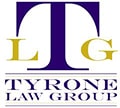Estate planning is the process of organizing your affairs so that your loved ones can be cared for if you die or become incapacitated. Due to the importance of estate planning, you must do the right things to make the estate planning process easy. Besides hiring a reputable estate planning attorney, some of the other things you should do include:
Have a list of your valuables
First, go through your entire home, inside and out, and compile a list of all valuable stuff. Examples include the house, televisions and computers, jewelry, collectibles, automobiles, art and antiques, lawn equipment, and power tools.
As you explore, make notes if you come across something you want to leave for a specific person. Don’t forget about sentimental belongings like family photos.
You also should list items you wish to contribute to a favorite charity.
To ensure you can remember the items, consider taking photos.
You will even be better off if you can ask someone to help you.
Put together your debts.
You should make a separate list of all your open credit cards and other obligations. This may include vehicle loans, mortgages, home equity lines of credit (HELOCs), and any other debts or open lines of credit you have.
Take note of the account numbers, locations of signed agreements, and contact information for the companies that hold the debt.
You should include all your credit cards, noting which ones you use frequently and which are sitting in a drawer unused.
You should note that you can simplify the process by adding a current statement or document with the necessary account information.
Have a list of all your memberships.
You should list all the groups you belong to, such as AARP, The American Legion, a veteran’s association, a professional certification association, or a college alumni club.
This is because, in some situations, these organizations may provide their members with free accidental life insurance benefits, which their beneficiaries may be qualified to receive.
Include any other charities that you support. You can tell your beneficiaries about the charitable organizations or causes that are important to you and to which you would wish donations made in your memory.
You also should note any recurring gifts you make to a nonprofit organization so that your heirs can cancel or continue them.
Document your nonphysical assets.
Add your financial holdings and entitlements to the list, ensuring they are explicit enough for your heirs to claim.
This includes bank and brokerage accounts, 401(k) plans, IRAs, life insurance policies, and other policies like long-term care, auto, disability, and health insurance.
You should include account numbers and the location of any physical papers you possess. List the contact details for the companies that own these non-physical items.
If it is easier, attach a recent statement or similar paper document with crucial information such as the account number, company, and contact information.
Review your retirement accounts.
Accounts and insurance with chosen beneficiaries will be transferred directly to those people or entities following your death.
Remember that it makes no difference how you direct the distribution of these accounts or policies in your will or trust. If there is a dispute, the beneficiary names for the retirement account will take precedence.
Check your online account, or contact your employer’s customer support team or plan administrator, for a current list of your beneficiary selections for all accounts.
You should examine them to ensure they are current. This is especially significant if you are divorced and remarried.
Find a responsible estate administrator.
When you die, your estate administrator or executor will administer your will. You must hire someone accountable and capable of making decisions.
Your spouse is not necessarily the greatest option, as they might be extremely affected by your demise.
You should consider how the emotions surrounding your death will influence this person’s decision-making skills.
If you anticipate any problems, consider other competent candidates. You could name a close friend or family member whom you trust to act impartially on your behalf.
Update your insurance
Life insurance and annuities, like retirement funds, pass directly to your specified beneficiaries. If you have life insurance, ensure your beneficiaries are up-to-date and accurately named.
In terms of timing, this could be the most crucial aspect of your estate plan. Your heirs will require instant access to some of your assets to meet their basic requirements and organize for your burial.
Draft your will
Everyone above the age of eighteen should have a will. This is because it is the rulebook for distributing your possessions, which may avert havoc among your heirs.
It’s best done as soon as you’ve completed all of the above-mentioned documentation. Your list of assets will make it easy to determine who receives what.
A will might appoint a guardian for minor children and specify who will care for your pets. You can also give assets to charitable organizations in your will.
Wills are generally affordable estate-planning documents to create. Your wills and trust attorney Largo will assist you in making a will for a small fee, depending on the complexity of your assets and the geographic region.
You can also create your own will using online tools or software.
When you make a will, sign and date it in front of two unrelated witnesses, who should also sign it, you should then get it notarized.
Finally, ensure that others are aware of the document’s location so that they can access it when necessary.
Simplify your finances
If you’ve changed jobs in the past, you may still have multiple 401(k) retirement plans or IRA accounts with previous companies. If this is the case, you should consider combining these accounts into a single individual IRA.
Consolidating accounts provides better investment options, reduced fees, a more comprehensive range of assets, less paperwork, and easier management for you and your heirs.
